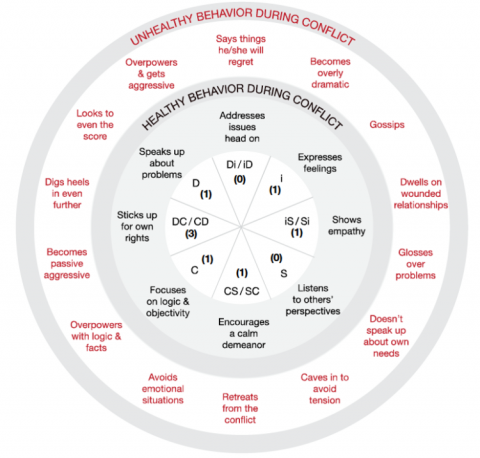Research suggests that effective teams and groups feel 'safe' together. This can be achieved, in large part, by instituting better communication and understanding about the differences between people. When people don't trust others they begin to hide their views, or seek to impose them. A group displays trust if everyone can listen to and respect each other's views, even when they disagree.
Trust can be harder when groups are comprised of very different people. We typically approach differences by making judgements, such as 'she is unfriendly'. When you notice this thought pattern try to approach it in a different way:
- seek to understand why they behave in the way they do, which leads to acceptance and appreciation
- value the person by looking at what qualities they bring to the table
This visual shows a range of conflictual behaviours alongside their 'healthy' counterparts. Consider which behaviors you have displayed or witnessed in groupwork. For those you have a propensity toward, think about how you can avoid these in the future. For those you have experienced, reflect on how you responded to them in the past, and how you could respond more constructively in the future.
Fig: Healthy vs Unhealthy Behaviours During Conflict. From: Droste Group, 2016. Team Development Process. Droste Group. Available at: https://drostegroup.com/team-development-process/

A group that is working with 'collective intelligence' will be focused on some simple communication behaviours:
- Sharing speaking time equitably
- Recognising other’s feelings through non-verbal cues (eye contact, positive tone of voice)
- 'Active listening', where the focus is on what is meant, rather than how it is said
- A range of conversational and participation styles are encouraged through use of a range of activities
- Members seek to understand and adapt to different talents and working styles
Think about how to translate these ideals into specific and relevant goals and agreements that you can implement into your Planning Wizard.
Can you think of any others, and can you institute any of these as formal expectations in your Planning Wizard?